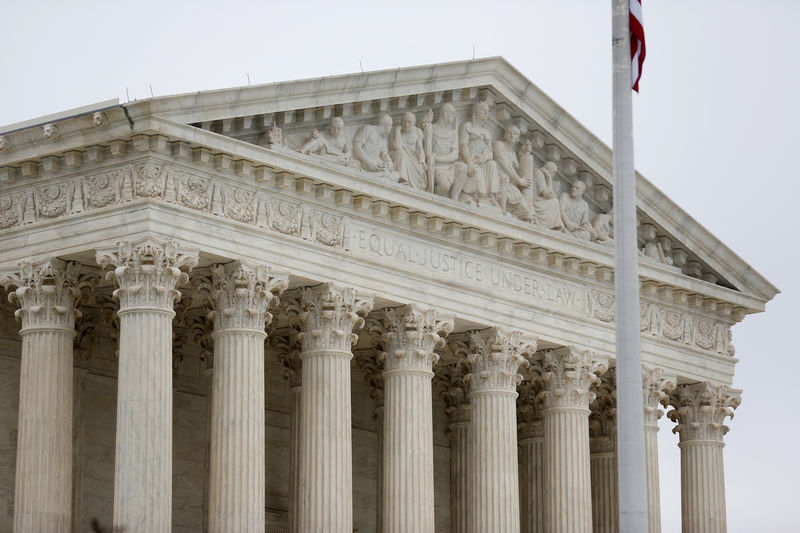By Andrew Chung
WASHINGTON (Reuters) - The U.S. Supreme Court on Monday rejected a bid by anti-abortion activists to narrow a Planned Parenthood lawsuit accusing them of illegally recording video of abortion providers to try to falsely show the illicit sale of aborted fetal tissue for profit.
The justices declined to hear an appeal by the activists of a lower court's refusal to toss out fraud, invasion of privacy and other claims under California law made in the civil lawsuit by Planned Parenthood, a women's healthcare and abortion provider.
Activist David Daleiden and his group, the Center for Medical Progress, had argued they were exercising their right to free speech under the U.S. Constitution in surreptitiously making the recordings.
Using footage recorded at conferences and other places, the Center for Medical Progress released videos in 2015 purporting to expose Planned Parenthood officials trafficking in aborted fetal parts, sparking controversy, congressional inquiries and investigations in various states.
Planned Parenthood has said the tapes were heavily edited to leave the false impression of wrongdoing.
The federal judge overseeing the case blocked the release of videos in a related matter, concluding there was no evidence of criminal wrongdoing captured in the videos. The Supreme Court left that ruling in place last year.
Daleiden and another activist also face criminal charges in California in connection with the videos.
Planned Parenthood sued Daleiden, the California-based Center for Medical Progress and others in 2016, accusing them of conspiracy and wiretapping violations under federal law, as well as claims under California law for fraudulently gaining access to the conferences.
The anti-abortion activists said they were performing investigative journalism and said Planned Parenthood was trying to "silence and punish" them.
The activists claimed they were shielded from the state law claims under another California law requiring dismissal of lawsuits that try to stifle free speech on a public issue, which is a guaranteed right under the state and U.S. constitutions. Laws meant to protect against nuisance suits that stifle free speech, known as known as an "anti-SLAPP" laws, are common in most states.

The San Francisco-based 9th U.S. Circuit Court of Appeals last year rejected their arguments, prompting Daleiden's appeal to the Supreme Court.